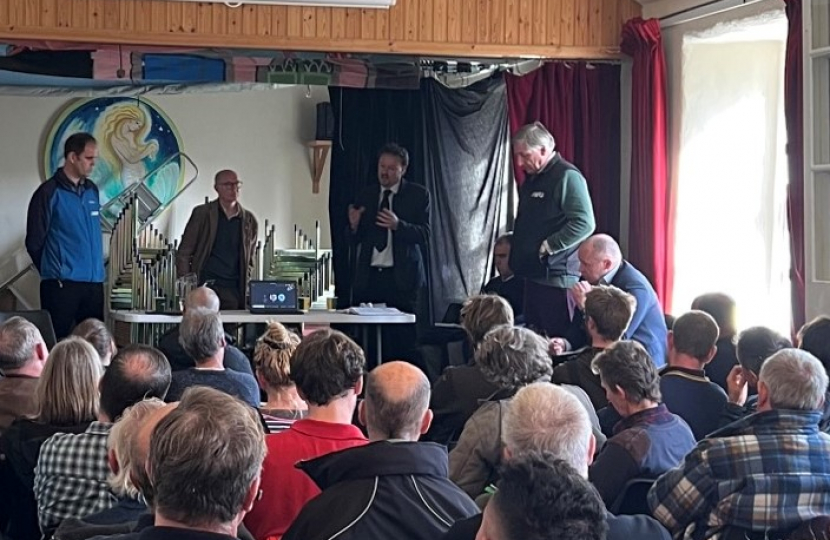
Keep farmers farming has been a theme of the work I’ve been engaged in over the past week. In support of the Nature and Climate Declaration, I led a debate in Parliament stating that, as we have debated net zero, we have alienated farmers, somehow blaming them for our carbon footprint and loss of biodiversity. I agree that, as we’ve hungered for cheap food over recent decades, we have done so at the expense of the natural environment. But I know, from visiting farms in West Cornwall that food production, enhancing the natural environment and decarbonisation cannot just be done in harmony but is mutually dependent. That was last Wednesday in Parliament and on Monday I joined with well over 80 farmers and landowners who are perplexed that the Natural England proposals to designate Penwith Moors and large parts of West Penwith as a SSSI (Site of Special Scientific Interest) appears to disregard the considerate way they have farmed, managed and cared for the land they are custodians of. It is to their credit that the land and biodiversity is such that it justifies such a special designation, so I see no real need for conflict between Natural England and the farmers concerned. There is a four month consultation period and I’m supporting efforts to ensure the SSSI enables farms to remain viable and is limited to land that is critical to preserving the scientific interest. I’d implore all landowners affected to take part in the consultation and I’m here to help as necessary at [email protected].
This week is Parliament Week and I’m privileged to visit a number of schools, Penwith College and uniformed groups to promote the wonders of our democratic system despite the rather clumsy way us MPs portray it at times. Despite all of its shortcomings, we have a Parliament were anyone should have access to the heart of Government through their elected representative which is not the experience of the vast majority of the world’s population.
This week is also National Diabetes Week and Action on Sugar Week. The two seek to achieve different outcomes but they are not entirely separate issues. Some MPs believe that Government has no responsibility for the choices people make. People should be free to live free and full lives but this, in my view, requires Government to highlight the risks people face and how we can reduce them. For example National Diabetes Week seeks to give people tools to reduce the risk of diabetes type two but it also seeks to raise awareness of how people can live well with a lifelong condition. Action on Sugar is targeted at Government and the food processing industry. It is very difficult to have control over the levels of sugar in our food because the food processors do very little to reduce the sugar content . We need give people good advice and access affordable nutritious food. I suspect Government will have to intervene on sugar content in the processed food industry despite the objections of some parliamentarians!
We have heard a lot of commentary leading up to Jeremy Hunt’s Autumn Budget and by the time we read this we will know what it includes. Jeremy Hunt is not naturally prone to blue sky thinking and certainly not minded to take risks which is helpful for someone in charge of the UK public finances. However, if the default position is to squeeze businesses and the general workforce through general taxation and use employers to mitigate the rising cost of living, we are likely to see even more years of living standards lagging behind our western counterparts. Rising inflation is being driven by energy and food prices which in turn is driving Bank of England interest rate rises. Inflation today is not driven by consumer behaviour or choice but by essential household expenditure so the typical tools to tackle inflation may not necessarily work. Whatever the Chancellor has chosen to do people must feel that the Government works for everyone otherwise we will not be forgiven when we next seek support at the polls.



